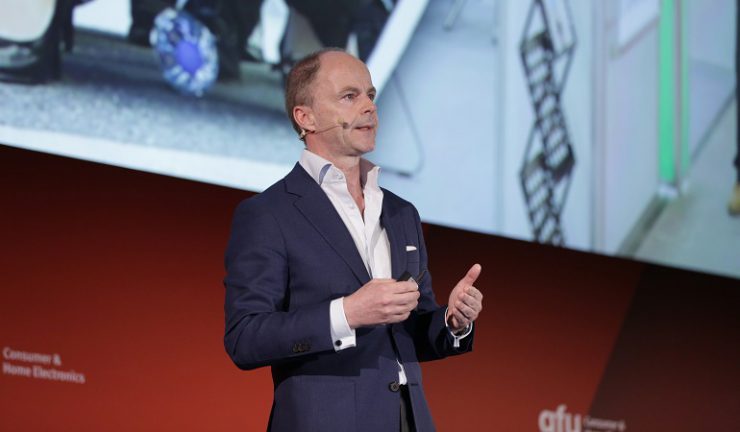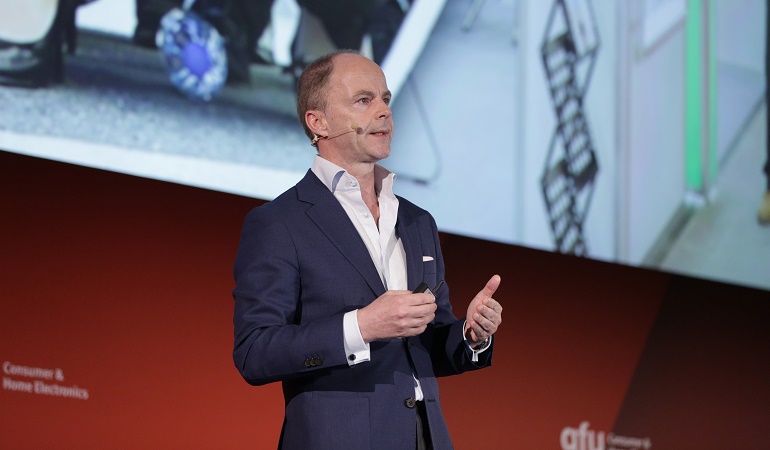At Rome press conference.
The world’s largest consumer electronics and appliances fair, IFA, has named three key trends which will be prevalent at the next exhibition to be held in Berlin in September.
The three key trends revealed at the IFA Press Conference in Rome last week were Smart Devices, Artificial Intelligence and 8K television.
At the Press Conference, presentations from GfK Europe reinforced the clear trends towards smart appliances and consumer electronics as well as the rapid adoption of artificial intelligence products. Sharp also unveiled the first 8K television in Europe and TCL has a very strong hint that 8K was on the agenda as its hero product for IFA Berlin in September.
In addition to major exhibition displays from BSH, Electrolux, Hisense, Miele, Panasonic, Samsung, Sharp, Sony and TCL, IFA has confirmed a number of other key platforms for visitors.

IFA Next, which premiered in 2017, will return as an area of the show for innovation platforms, start-ups and research institutes
IFA Global Markets brings together the component manufacturers, OEMs and ODMs in a dedicated space. This part of the show is already over-subscribed for 2018 and has grown to become Europe’s largest sourcing show for the consumer electronics industry.
IFA has also announced a joint venture with the Geneva International Motor Show which will see a new area developed for show called Shift Automotive. This area will explore new automotive technologies and will be held on the final two days of IFA on September 4 and 5.
“Technology mega trends are driving innovation, with components that are ever smaller and ever more powerful, which in turn power emerging technologies like voice control and artificial intelligence,” said the CEO of Messe Berlin, Christian Goke.
“IFA is the convener for all of this innovation, it’s the connecting tissue for the global technology ecosystem. That’s because it’s not just one sector innovating, but seven, eight or nine different industries that all try to solve the same problems and push the edge of innovation. Each industry brings its own knowledge, insights and skills to the table. All these industries learn from each other, they inspire each other. That’s co-innovation at its best.”

